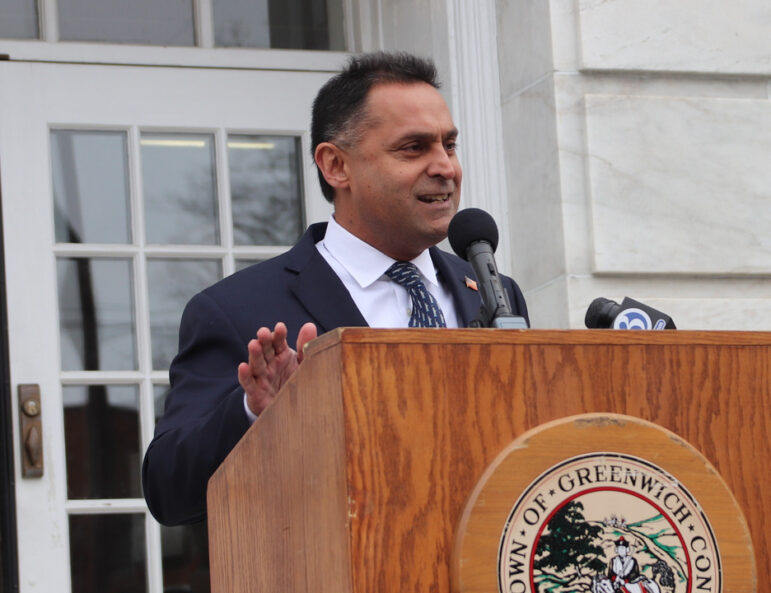Harry Arora, State Rep from Greenwich (R-151), announced on Wednesday that he will seek his party’s nomination to be their candidate for Connecticut State Treasurer. In February, he formed an exploratory committee to examine a possible run.

Follows is a release from the Arora campaign:
“This is a pivotal moment in our state. I have spoken with residents throughout Connecticut, and it’s time for a change. Inflation is up and our retirees’ pensions have not kept pace. CT continues to be one of the worst funded pension systems in the country. The due diligence of our bond issuances, especially for our capital programs, has been lacking. Our citizens are dismayed that the Federal government is investigating mismanagement of school construction programs across the state.”
“If elected, I will ensure that our debt is used prudently, and a high level of due diligence is performed before one single penny is spent from the Treasury. I will focus on asset allocation and returns on our pension investments. I will put an end to excessive fees being paid by the state for subpar returns.”
Harry Arora is an immigrant American who came to the United States 29 years ago to attend college. He is an electrical engineer and has graduate degrees in finance and public policy. He spent 20 years in the private sector managing investments before pivoting to public service. His experience in investing is particularly relevant to Connecticut’s pension system and its asset allocation. His extensive knowledge of the fixed income markets will allow him to effectively manage our state’s debt.
Harry Arora is the state representative for CT General Assembly’s 151st District. He is serving his second term and is the ranking member of the Labor Committee in the legislature. The Treasurer is responsible for oversight of the $45 billion of state pension assets and for the financial management of the nearly $26 billion tax-supported debt.